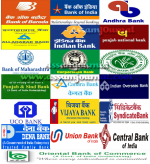
He said that factors like inefficient physical operations, excessive crowding of intermediaries, long and fragmented market chains and low-scale have deprived farmers of fair price for their produce.
“Farmers should get fair price for their produce that is the biggest and foremost challenge,” said Mr Singh. “We are in the process of removing all discrepancies to promote agriculture sector across India.”
The union minister informed that government has given funds to about 214 markets from eight states that have come up with a proposal to join the online trading platform National Agriculture Market (NAM).
“The strategic partner has been hired to make an e-trading platform and computerise the markets, I believe that we will have a single e-trading platform for 200 markets by September 25, 2016 and we will add another 200 markets by March 2017 as we aim to connect 585 markets and this number might increase considering the number of proposals being received from states,” said Mr Singh.
He said that NAM will ensure expansion of existing markets and will also facilitate transactions where physically markets currently do not exist. “While material flow (agriculture produce) shall continue to happen through mandis, an online market would reduce transaction costs and increase transparency.”
Seeking the industry’s co-operation and active engagement, Mr Singh said “The success of NAM programme will depend not merely on technical solutions, but on complete involvement and collaboration all players.”
He added that government would provide full support to the futures market to improve remuneration to farmers through hedging, risk mitigation and strengthening commodity exchanges.




Leave a Reply
You must be logged in to post a comment.